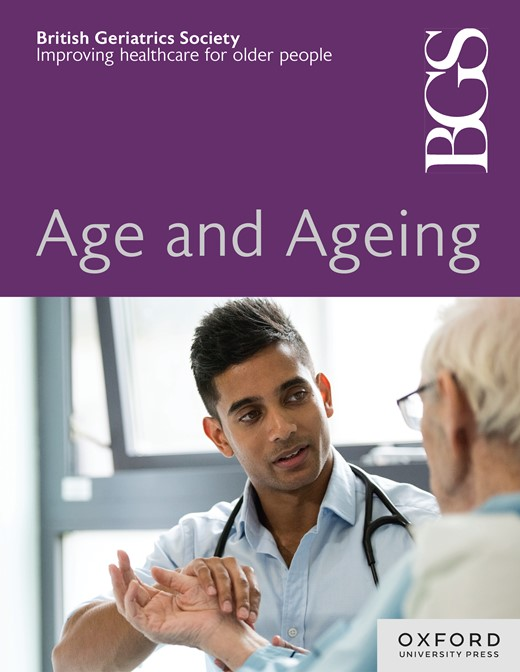Bone-A-Fide Breakthrough: Machine Learning Cracks the Code on Osteoporosis Treatment Using the Irish Hip Fracture Database
IF 6
2区 医学
Q1 GERIATRICS & GERONTOLOGY
引用次数: 0
Abstract
Background Osteoporosis is a metabolic bone disorder characterised by decreased bone mineral density and mass. Due to its asymptomatic nature, it often remains undiagnosed and untreated until a fracture occurs. Traditionally, treatment decisions for osteoporosis are based on clinical appropriateness while balancing the treatment's risks and benefits. Machine learning (ML) is revolutionising healthcare domains through pattern recognition of previously “unseen” observations. Presently, its application in osteoporosis is limited to early diagnosis. More research is needed to examine its role in guiding osteoporosis treatment. This study aims to identify new predictive attributes for osteoporosis treatment using ML techniques on data from the Irish Hip Fracture Database (IHFD). Methods Datasets from January to March 2023 in University Hospital Waterford were sourced from the IHFD. Osteoporosis treatment decisions were obtained from discharge letters. Preliminary data cleaning was performed in Excel with zero-variance and near-zero predictor. Attributes excluded. The dataset was entered into the WEKA 3.8.6 environment for ML processing. Results The initial dataset containing 141 instances and 32 attributes was refined using the Correlation Feature Selection and Ranker Search Method, identifying key osteoporosis treatment predictors. The highest correlation attributes are pre-fracture total score, pre-fracture indoor score, and age. Moderately positive correlations are discharge destination, pre-fracture outdoor and shopping score, ASA grade, Length-of-stay, admission code, Admission 4AT score, Frailty scale, and fracture type. The implemented J48 Tree ML-trained model revealed Correctly Classified Instances and Incorrectly Classified Instances of 98.24% and 1.7%, respectively, indicating a high prediction accuracy rate. Conclusion This study demonstrates the potential of ML in enhancing osteoporosis treatment decision-making by leveraging datasets from the IHFD. Integrating ML algorithms with traditional approaches can provide a comprehensive, nuanced and personal approach to osteoporosis treatment and patient care. The study opens avenues for future research in applying big data and advanced analytics in healthcare, underscoring the evolving landscape of medical decision-making.真正的骨骼突破:机器学习利用爱尔兰髋部骨折数据库破解骨质疏松症治疗密码
背景 骨质疏松症是一种代谢性骨病,其特点是骨矿物质密度和质量下降。由于无症状,骨质疏松症往往得不到诊断和治疗,直至发生骨折。传统上,骨质疏松症的治疗决策基于临床适宜性,同时平衡治疗的风险和收益。机器学习(ML)通过对以前 "看不见 "的观察结果进行模式识别,正在彻底改变医疗保健领域。目前,它在骨质疏松症中的应用仅限于早期诊断。需要进行更多的研究来探讨其在指导骨质疏松症治疗中的作用。本研究旨在通过爱尔兰髋部骨折数据库(IHFD)的数据,利用 ML 技术识别骨质疏松症治疗的新预测属性。方法 从 IHFD 中获取沃特福德大学医院 2023 年 1 月至 3 月的数据集。骨质疏松症治疗决定来自出院信。初步数据清理在 Excel 中进行,方差为零,预测因子接近零。排除属性。数据集被输入到 WEKA 3.8.6 环境中进行 ML 处理。结果 初始数据集包含 141 个实例和 32 个属性,使用相关性特征选择和排序器搜索法对数据集进行了改进,确定了关键的骨质疏松症治疗预测因子。相关性最高的属性是骨折前总评分、骨折前室内评分和年龄。中度正相关的属性有出院目的地、骨折前室外和购物得分、ASA 分级、住院时间、入院代码、入院 4AT 评分、虚弱量表和骨折类型。J48 树 ML 训练模型的正确分类率和错误分类率分别为 98.24% 和 1.7%,显示了较高的预测准确率。结论 本研究通过利用 IHFD 数据集,展示了 ML 在增强骨质疏松症治疗决策方面的潜力。将 ML 算法与传统方法相结合,可为骨质疏松症治疗和患者护理提供全面、细致和个性化的方法。这项研究为未来将大数据和高级分析应用于医疗保健领域的研究开辟了道路,凸显了医疗决策的不断发展。
本文章由计算机程序翻译,如有差异,请以英文原文为准。
求助全文
约1分钟内获得全文
求助全文
来源期刊

Age and ageing
医学-老年医学
CiteScore
9.20
自引率
6.00%
发文量
796
审稿时长
4-8 weeks
期刊介绍:
Age and Ageing is an international journal publishing refereed original articles and commissioned reviews on geriatric medicine and gerontology. Its range includes research on ageing and clinical, epidemiological, and psychological aspects of later life.
 求助内容:
求助内容: 应助结果提醒方式:
应助结果提醒方式:


